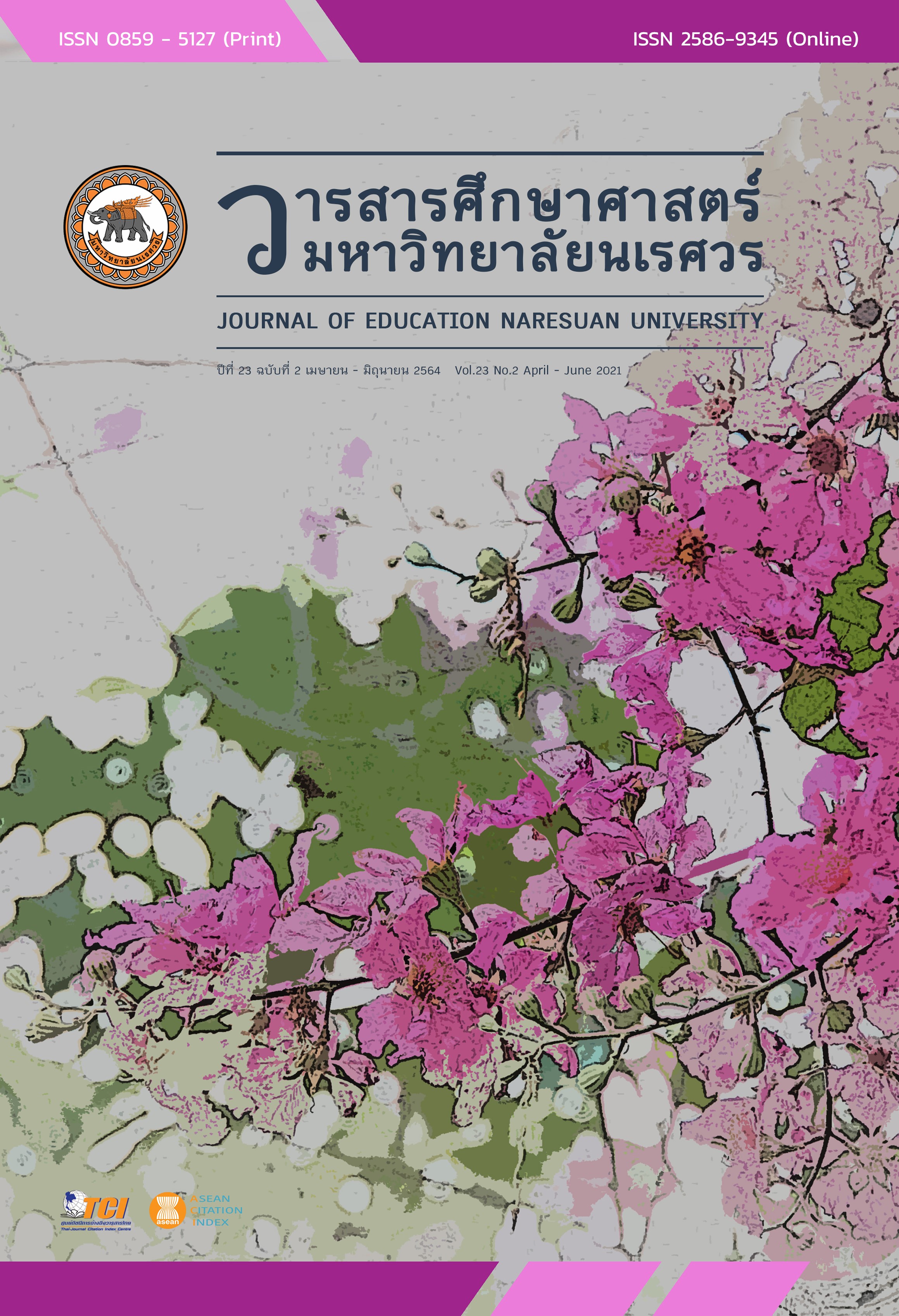USING SCIENCE TECHNOLOGY SOCIETY AND ENVIRONMENT (STSE) APPROACH TO ENHANCE ENVIRONMENTAL LITERACY IN HUMAN AND ENVIRONMENTAL SUSTAINABILITY FOR TWELFTH GRADE STUDENTS การจัดการเรียนรู้ตามแนวคิดวิทยาศาสตร์ เทคโนโลยี สังคม และสิ่งแวดล้อม เพื่อส่งเสริมการรู้สิ่งแวดล้อม เรื่อง มนุษย์กับความยั่งยืนของสิ่งแวดล้อม สำหรับนักเรียนชั้นมัธยมศึกษาปีที่ 6
Main Article Content
Abstract
The purpose of action research was development of environmental literacy by using science technology society and environment (STSE) approach in human and environmental sustainability for grade 12th students. The participant were 37 students by purposive sampling. There were 5 steps of science technology social and environment approach including 1) motivating students, 2) searching the information questioning and discussing, 3) discussions with students, 4) applying knowledge to practice, and 5) evaluating. Research instrument included 1) lesson plan, 2) activity sheet, 3) working, and 4) activity reflection journals. Data were analyzed using content analysis and verified responsibility by triangulation method. The research results showed that successful environmental management should be selected to use environmental issues that affect and suitable for the student context. Therefore, can encourage students to have environmental attitude and learn to solve environmental problems by themselves. The most important step for learning by science technology society and environment approach is the application of knowledge to practice. This step can encourage students to express environmental behavior by using environmental knowledge derived from environmental issues into practical action about solving problems that are appropriate for environmental issues.
Article Details
The owner of the article does not copy or violate any of its copyright. If any copyright infringement occurs or prosecution, in any case, the Editorial Board is not involved in all the rights to the owner of the article to be performed.
References
Buranasathitwong, P., Sawangmek, S., & Nangngam, P. (2019). Developing of explain phenomena scientifically and interpret data and evidence scientifically competencies for grade 10th students through advertising as a learning management in topic of the digestive system. Journal of Education Naresuan University, 21(2), 212-224. [in Thai]
Fernandez-Manzanal, R., Rodriguez-Barreiro, L., & Carrasquer, J. (2007). Evaluation of environmental attitudes: analysis and results of a scale applied to university students. Science Education, 91(6), 988–1009.
Heepkaew, P., Limyingcharoen, N., & Jaroenkornburi, S. (2009). The development of Mathayomsuksa 3 student, problem solving ability and learn. KKU Research Journal, 9(1), 120-128. [in Thai]
Janta, P., Pattarathitinant, P., & Saksoong, P. (2012). The effects of science, technology, society and environment approach on problem solving ability of grade 10 students. In the 2nd STOU Graduate Research Conference (pp. 1-15). Nonthaburi: Sukhothai Thammathirat Open University. [in Thai]
Kijkuakul, S. (2015). Science learning management: Direction for teachers in the 21st century. Phetchaboon: Juldis. [in Thai]
Kongkewpan, D. (2010). An application of tools for thought to develop critical thinking and problem-solving abilities of fifth to sixth grade students (Master thesis). Bangkok: Chulalongkorn University. [in Thai]
Murphy, T. P., & Olsen, A. M. (2008). The third Minnesota report card on environmental literacy: a survey of adult environmental knowledge, attitudes and behavior. St. Paul, MN: Minnesota Pollution Control Agency.
Nakhai, L., & Onthanee, A. (2017). A development of learning activities by using science, technology, society and environment approach to promote problem solving ability and environmental consciousness on topic “resource and environment conservation” for grade 9 students. Humanities and Social Sciences Journal of Graduate School, Pibulsongkram Rajabhat University, 11(2), 174-189. [in Thai]
Partnership for 21st Century Skills. (2011). Framework for 21st century learning. Retrieved June 3, 2019, from http://www.p21.org/storage/documents/P21_Framework_Definitions.pdf
Reeves, T. C., Herrington, J., & Oliver, R. (2002). Authentic activities and online learning. In A. Goody, J.
Herrington & M. Northcote (Eds.), Quality conversations: Research and Development in Higher
Education (pp. 562-567). Jamison, ACT: HERDSA.
Richardson, G., & Blades, D. (2000). Social studies and science education: Developing world
citizenship through interdisciplinary partnerships. Canadian Social Studies, 35(3), 10-22.
UNESCO. (1978). Tbilisi declaration. Connect, III, 1-8.
UNESCO. (2017). Textbooks for sustainable development: A guide to embedding. Paris, France: UCL Institute of Education.


